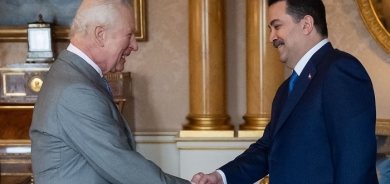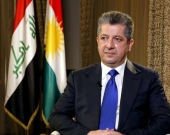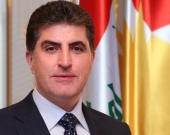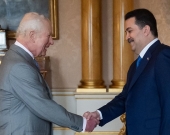PKK Pullout from Turkey Welcomed by KRG, Opposed by Baghdad

There was no official confirmation from Turkish authorities about the PKK withdrawal, but Selahattin Demirtas, co-chairman of the Kurdish Peace and Democracy Party (BDP) that has mediated the peace process with Ankara, told the AFP news agency that, “We know that they have started moving.”
It is believed that the PKK has more than 2,000 fighters in southeastern Turkey, in areas they occupied after several weeks of clashes with the Turkish military last summer.
The withdrawal has been welcomed by Iraq’s autonomous Kurdistan Regional Government (KRG), which controls the Qandil area, but not by the central government in Baghdad, which said it infringed on Iraq’s sovereignty.
Following months of negotiations between the PKK’s jailed leader Abdullah Ocalan and Turkish leaders, the 65-year-old rebel leader announced a peace plan and urged his fighters to withdraw from Turkish territories into the Qandil Mountains, where the group’s leadership is based.
“Though we are withdrawing from areas that we consider rightfully ours, we still do as the peace process requires,” Murat Karayilan, the PKK’s top commander, told reporters at his Qandil base last month.
PKK leaders have said that the complete withdrawal of their fighters could take months, and have warned Turkey not to disrupt the process.
“If during this process any attack or military operation happens, we would immediately stop the withdrawal and take a defensive position,” Karayilan said.
Hours before the scheduled withdrawal began, PKK leaders had reported that Turkey had increased its military presence and aerial surveillance in the area, warning that could delay the peace process.
“We feel that we are close to getting results," The Associated Press quoted Turkish Deputy Prime Minister Bulent Arinc as saying about the peace process. “It's the results that are important for us,” he said.
Meanwhile, Yasin Majid, a senior leader of the ruling Iraqi State of Law Coalition, told a news conference in Baghdad that Iraq has no objections to the Ankara-PKK peace agreement, but objected to fighters withdrawing into areas that Baghdad considered Iraqi territory.
The Qandil Mountains are located in the autonomous Kurdistan Region in northern Iraq, which has its own borders, parliament, constitution and military.
Majid urged the Iraqi parliament and foreign ministry to study the possible outcome of fighters arriving at Qandil. “It might compromise Iraq’s sovereignty,” he said.
He suggested that both Ankara and the PKK had decided between themselves that fighters should withdraw to Qandil. However, KRG officials are reported to have been instrumental in getting the peace process going. KRG Prime Minister Nechirvan Barzani has welcomed the peace process, and blessed the withdrawal of PKK fighters to the mountains that fall within KRG jurisdiction.
Iraq’s foreign ministry expressed its objection to the PKK’s move into northern Iraq.
“The Iraqi government does not agree to the arrival of armed men in its territory,” the ministry said. “It is possible that they (the guerrillas) might harm Iraq’s internal security as well as the security of the neighboring countries,” it added.
Rudaw












